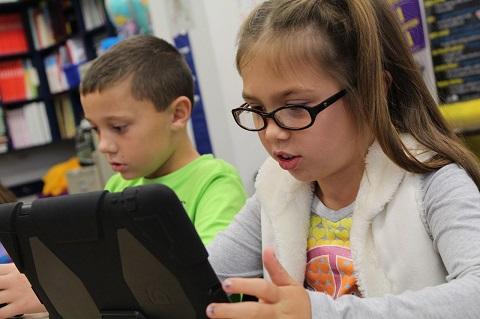
Published on: 21/04/20
With children at home during the coronavirus lockdown, Amy Wright, Advanced Practitioner in Assistive Technology at The Children's Trust, shares her tips for children following a brain injury.

Published on: 21/04/20
At this time children may be spending more time on screens and this can be a great way to aid learning, allowing children to access and interact with educational apps in a creative, engaging way.
Amy Wright, Advanced Practitioner in Assistive Technology at The Children’s Trust, has good advice for parents to help children get the most out of their iPad/tablet:
“Small adjustments to the set-up can have a big impact on how well the child can do the activity without help. By using guided access features you might even get the kettle switched on before you’re needed to help with the next step in the game!”
This helpful advice shares information about guided access (a type of parental control), a selection of popular apps, and tips on how to improve screen accessibility for your child – for example by reducing sound interference by using comfy headband headphones with volume limiting controls, or improving screen visibility by minimising glare and distractions.
There are great apps available for all sensory preferences. Some are based on sound and sound making, while others are designed to suit different visual skill levels or work on movement making.
“Find an app that builds on your child’s interests and strengths, play it together at first and gradually reduce the amount of help you give them,” Amy suggests.
“For some children, it’s not just the technology that gets a smile it’s playing the app with a person they love.”
After a brain injury children do need to take more rest breaks, and it is important that some of this rest time should be away from screens. And in terms of general activities, time online should be balanced with time doing other activities like music, art or exercise.
Coronavirus – tips for families includes lots of ideas on how to establish a good routine with plenty of rest and relaxation along with other activities.
In addition, The Children’s Trust have also produced this useful Resources for Families, a list of web-based resources, apps and organisations that might be helpful to you now or in the future.
There is also our Coronavirus Sensory Story that adults can use at home to help explain the situation to children.